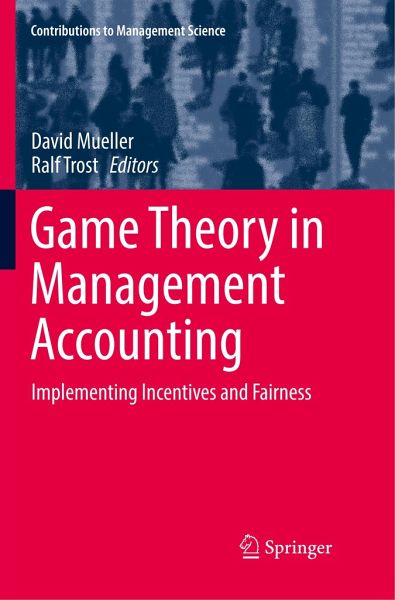
Game Theory in Management Accounting
Implementing Incentives and Fairness
Herausgegeben: Mueller, David; Trost, Ralf
Versandkostenfrei!
Versandfertig in 6-10 Tagen
174,99 €
inkl. MwSt.

PAYBACK Punkte
87 °P sammeln!
This book demonstrates what kind of problems, originating in a management accounting setting, may be solved with game theoretic models. Game theory has experienced growing interest and numerous applications in the field of management accounting. The main focus traditionally has been on the field of non-cooperative behaviour, but the area of cooperative game theory has developed rapidly and has received increasing attention. Intensive research, in combination with the changing culture of publishing, has produced a nearly unmanageable number of publications in the areas concerned. Therefore, one...
This book demonstrates what kind of problems, originating in a management accounting setting, may be solved with game theoretic models. Game theory has experienced growing interest and numerous applications in the field of management accounting. The main focus traditionally has been on the field of non-cooperative behaviour, but the area of cooperative game theory has developed rapidly and has received increasing attention. Intensive research, in combination with the changing culture of publishing, has produced a nearly unmanageable number of publications in the areas concerned. Therefore, one main purpose of this volume is providing an intensive analysis of the intersection of these areas. In addition, the book strengthens the relationship between the theory and the practical applications and it illustrates the two-sided relationship between game theory and management accounting: new game theoretic models offer new fields of applications and these applications raise new questions forthe theory.












